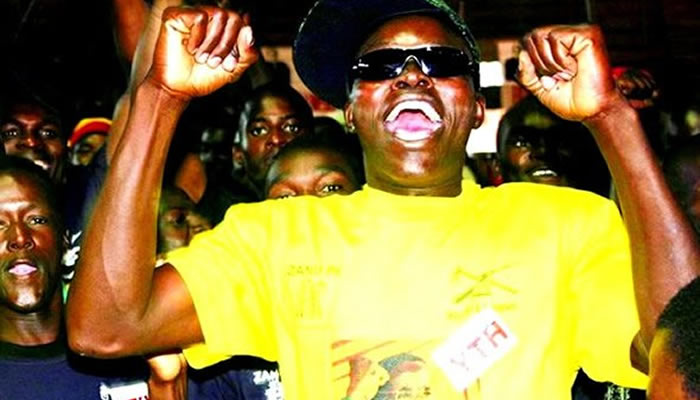By Davison Muchadenyika
It is no secret that young people constitute the highest percentage of the unemployed in Africa. It is also an indisputable fact that young people constitute the majority of Africa’s population.

It is also a saddening reality that young people are underrepresented in African politics. In parts of Africa where political violence’s ugly scenes have been witnessed; we, the young people were weapons used to unleash such violence.
Countries such as Zimbabwe, South Sudan, and Kenya come to mind. In reflecting on the challenges we find ourselves in, it is important to question the political construction of our societies.
Moving through Africa’s capitals from Cape Town, Johannesburg, Harare, Lusaka, Kinshasa to Kenya; one thing is very prevalent – increasing informality in terms of both settlements and urban economies.
However, when you turn to demographics, you realise that it is mostly young people who are engaged in informal activities in these cities. In fact, young people are struggling – living through selling sweets, newspapers, memory cards, flags; you name it.
This is despite that these young people are not only literate but highly qualified – a saddening reality of our generation. Confronting the plight of young people is not easy, but as long as we are alive – we have to choose between action and non-action.
I choose action over non-action. It is precisely action that has transformed human welfare since civilisation to date. People who have challenged the status quo have transformed the world – this is true, be it in commerce, science and medicine, urban planning and architecture, aviation and agronomy.
It is precisely in our situation that I draw inspiration from one of my great scholar – David Harvey. In particular he says ‘when encountering a serious problem’ such as poverty or inequality, it is ‘vital … not merely to try to solve the problem itself but to confront and transform the processes that give rise to the problem in the first place’. By this, he calls for a program of radical political action as a means of societal and structural transformation.
Put differently, we are in an era where radical political action is necessary. However, such kind of politics cannot be led by the old generation. It is only us – the most affected by the present political system who can rise to the occasion. A few weeks ago I listened to Julius Malema of the Economic Freedom Fighters at a university in Cape Town.
In him, his vision and his party – I saw a new kind of politics. A politics grounded in challenging the status quo. Politics that seek to transform the living conditions of the marginalised and poor. In order to understand what EFF stands, one must be able to separate the personalities of its drivers and the message.
Their message is a message of hope and strength to millions of young people labouring to have even one decent meal a day. It is a message that gives strengthen to millions who grew up, schooled and married whilst calling slums their home.
I looked at the deteriorating socio-economic and political conditions in Zimbabwe; it is not promising but a kind of new politics provides hope. Malema teaches us that you don’t need to be in well-established parties to make an impact in politics. It is the ideas, vision and strategy and not a political party that makes an impact in grassroots politics.
The recent ‘split’ of MDC-T must not be taken as an end in itself. It can only be an end if those recalled do not have a vision for Zimbabwe. If they have, the story of Malema gives them renewed hope. Whoever in Zimbabwe will be able to come up with a message that resonates with young people is guaranteed a seat at the state house.
As young people, we have two political weapons – we are the majority (for voting) and we have strength for collective action where necessary. It is not true that as Zimbabweans we are cowards when it comes to action.
Rather, we are so literate that we want to engage in action that is rooted in transforming our lives. We understand that it is suicidal to enter into collective action that hand over power to some old generations who don’t carry our vision at heart.
I seek to be challenged in this understanding.






